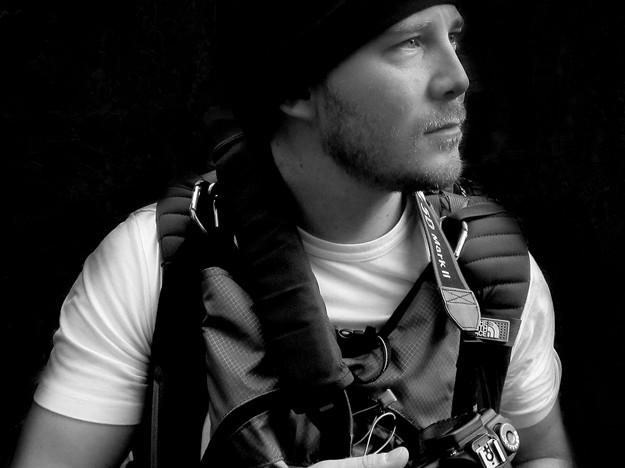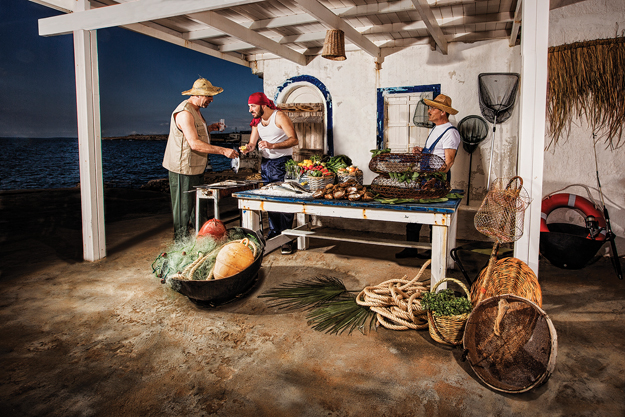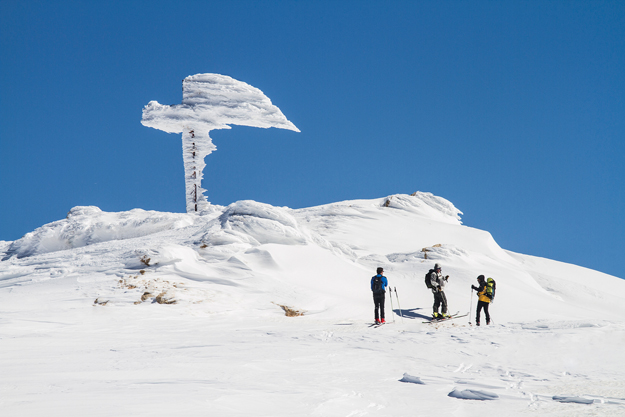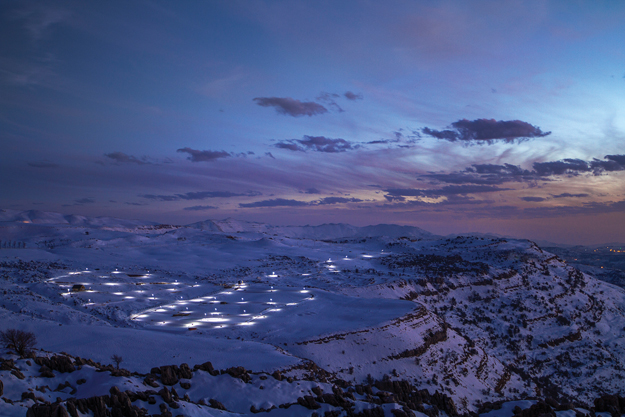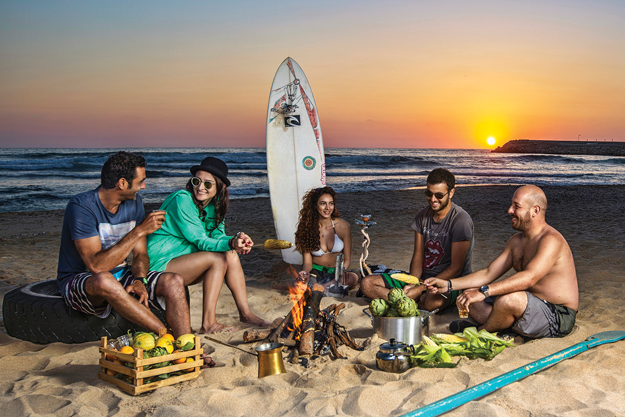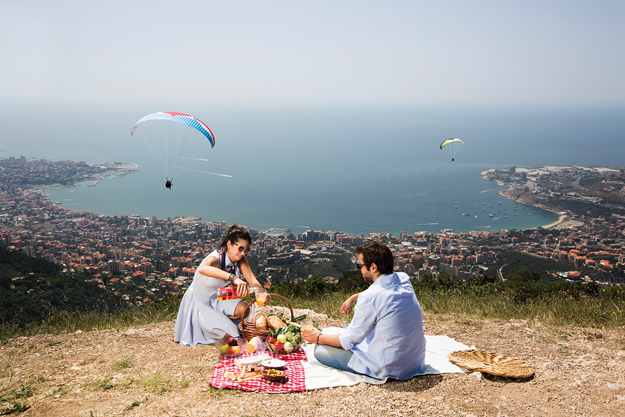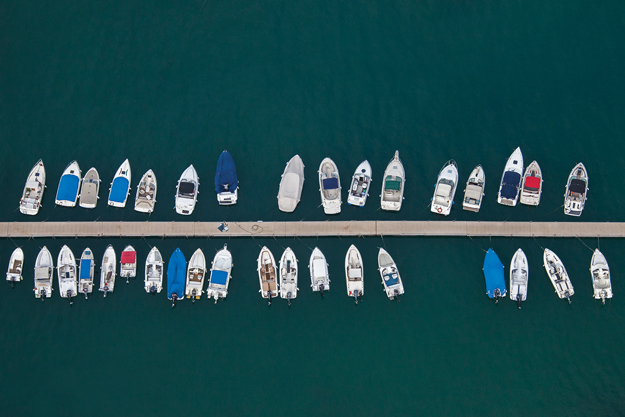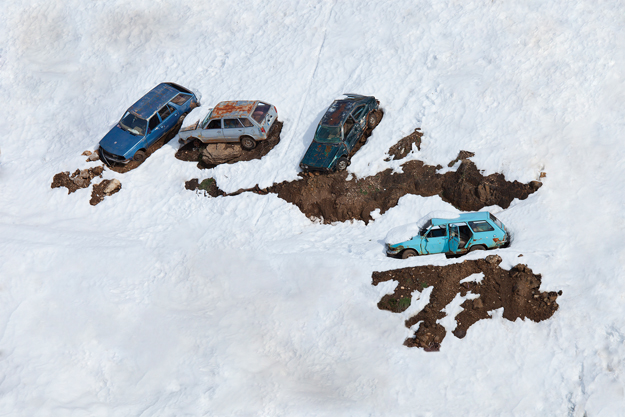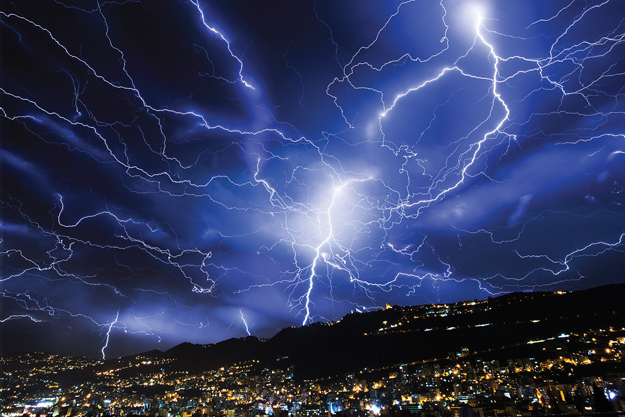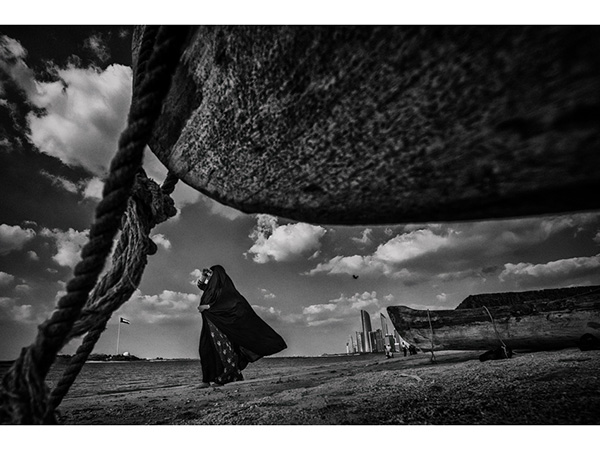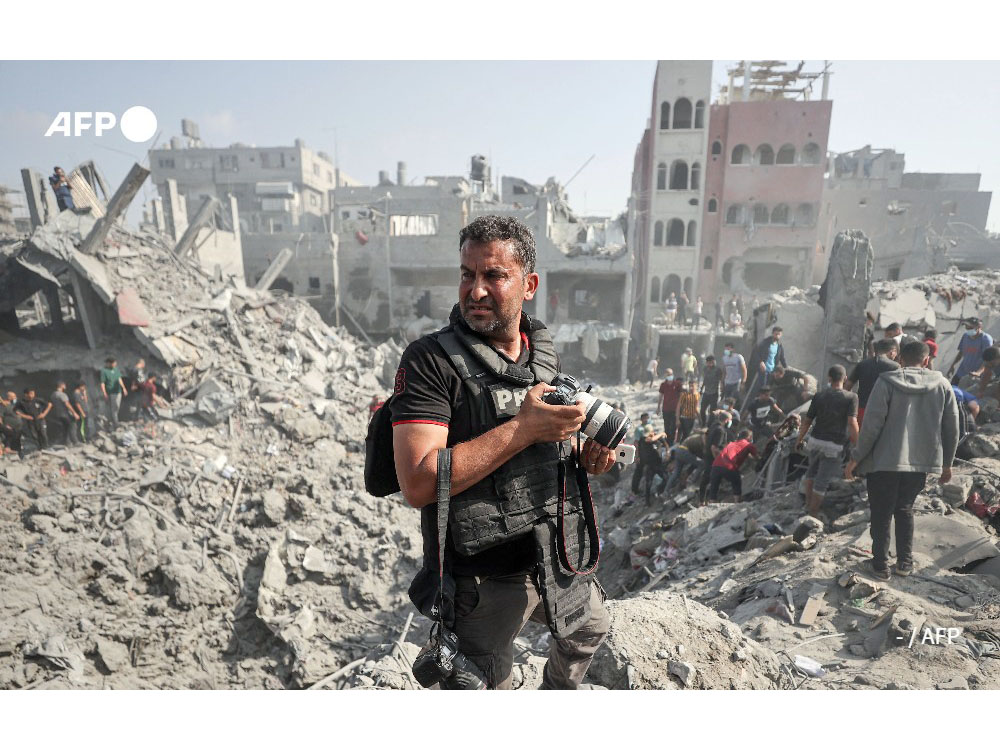Art & Design
Living in a Picturesque Dream
December 16, 2015

Tell us a little bit about yourself… What was your career path like?
I have been passionate about photography since childhood. Though I've been a photographer for 10 years, it only became my job four years ago. First, I was a self taught photographer while my interest for visual communication was growing. I took intensive photography courses during my master in the London College of Communication. Since then, I started to travel every year for workshops or invite the internationally renowned photographers to my studio.
During my studies in advertising and communication I never thought I'd become a professional photographer but as I always say, it is not me who chose my job, it is the job that chose me... It was not easy to leave my corporate job and follow my passion. Looking today at the company I've established 'Charbel Bouez Visual Communication' I can say that it was the best decision I took in my life. I am one of those lucky ones in love with their job.
What’s the best part of being a photographer?
Photography became a lifestyle; it is a permanent thirst for culture. It is a job that pushes me to be curious and widen my horizon. I really love to be close and in contact with people and understand different cultures, hear, learn, and share. I think the human side of photography is what I love most: telling stories, creating awareness and touching people… It feels similar to immortalising moments and opening windows for dreams and a better future.
What is the hardest part of your job?
To be a professional commercial photographer is not an easy job. It is always a challenge to find common ground between the client's vision and yours. Also, the client's expectation is always high since in most cases he is spending loads to promote a product or himself. To create a reliable and successful company, you have to be creative, consistent and continue to prove yourself. Otherwise, it would be very hard to work in this tight and competitive market.
If not a photographer who you would have been?
I don't see myself doing anything else. I am glad and happy my passion became my job and that’s what I do best. It is difficult to explain, but I feel that all my studies and experiences have driven me in that direction.
How would you describe your style and how did you develop it?
I am very versatile and always eager to try new techniques and different styles depending on each project. Nevertheless, I am very interested in nature and ecology; this is why my personal projects always try to involve those two aspects. A good example would be Silvio Chiha's movie titled “Lebanon Through My Eyes” where I tried to show the beauty of Lebanon’s nature.
Which photographers inspired and influenced you most?
I am inspired by two photogarphers Yann-Arthus Bertrand and Peter Lik. Yann Arthus-Bertrand is a French photographer, journalist, reporter and environmentalist. He is especially well known for his book 'Earth from Above' and his film 'Home'. Peter Lik is a photographer from Australia, best known for his nature and panoramic landscape images. He got the award of Master of Photography from the Australian Institute of Professional Photography in 2002. Sadly, there aren't enough words to describe this genius of photography. If you are into photography you probably heard about him, if not, check him out, he is totally worth it.
I am very inspired by these two photographers; both had a message and were excellent in marketing their names and projects. In brief Bertrand was a pioneer of aerial photography; his book "Earth from Above" became a best seller and his ecological video "Home" a masterpiece and in my opinion a gift for humanity. Lik, using a different approach, had a mission to highlight the most beautiful landscapes and spots in the world to help protect them and trigger awareness about the infinite resources available. Lik photos are worth millions. He sold the most expensive photo ever, which naturally caught my attention.
How do you educate yourself to take better pictures?
I read as much as I can to broaden my imagination and inspiration, especially when it comes to staying up to date about the latest technologies in a world that is evolving fast. I always try to get in touch with renowned photographers and less known ones because I truly believe in this exchange. Truth of the matter is, I am never satisfied with my photos, which is why I always try to do better. I think this approach helps me evolve fast especially by sharing some of my work with more experienced and influential figures in this field.
What are your thoughts about digital photography?
I use digital cameras because they are taking this industry to the next level. Today professional and commercial photographers use digital cameras since the market requires images that can be easily manipulated for advertising purposes. I can easily do that because I can control the photos thereby doing away with undesired outcome.
However, I really think that it is always interesting to experiment on film cameras for personal use. Personally, film cameras helped me a lot understand the camera mechanics and it is always fruitful trying to correct and retouch photos in post production. But when working on a business project, I really don't see why someone would use them or complicate the photo process when much advanced cameras are available today.
What kind of mode do you go into when photographing a concept or idea you are passionate about?
Such a question should be asked to the people I work with, as I am sure they would describe the situation better. Personally, I see myself as a very easy going and fun person, but I take my job very seriously. During shoots I can be an unpleasant person, especially when things don't go as planned... During photo sessions or meetings to develop a concept I become very focused, organised and keen to give the best outcome possible. I love my job but for me it is definitely not a fun job especially when you have a goal in mind.
What gives you ideas and inspires you to create good imagery?
To create good imagery you have to “have an eye” as they say and this comes naturally. Some people have it, others don’t. It is exactly the same for music. You either have a musical ear or don't. In this case, being sensible helps a lot. After all, a photo has to narrate a story, to talk, to have a spirit, which is where the emotion part interferes. I really think that a good photo offers this strange and magical feeling that touches the viewer.
I have always loved nature and during my exploration of Lebanon's remotest places I realised how criminal our society is towards our country’s natural beauty. The destruction of some beautiful places was getting me really mad and sad. I think I was not older than 15 or 16 when I took my first photos. With time, as I was getting more mature, I decided to immortalised the beautiful spots that we as citizens had to save and preserve... This is how my adventure with photography began. Today, even though my style and subjects are very diversified, you can notice in my social media communication or in some of my exhibitions that many of my photographs are still very related to Lebanese traditions, nature and ecology. That is why I always try to show the remaining beauty of this country even if we are living in an ecological disaster. As for good imagery and to create photos that can travel worldwide I think that research is my secret. Photography is like fashion, the style and trends even colours change and evolve in this field.
What is the favourite image you recently shot?
I am still working on a brilliant concept 'The Nude Lebanon' that features a nude model in the least expected and most beautiful places in Lebanon. Those series of photos are the one I prefer most and hope they will have a big impact on our society. Those kinds of pictures are not just about the beauty of the human body but also have a lot to do with the beauty of this small country. This concept will definitely create controversy but will help society to keep on open mind regarding nudity by never forgetting the underlined spots or regions.
Creating such photographs can sometimes be risky since some of them are taken in crowded places. This is why this project requires loads of preparation and an excellent lighting team. It is a project impossible to execute without a team. I am really excited about people’s reaction!
What makes a good picture stand out?
The story behind it and the emotion that it creates for the viewer.
What has been your most memorable session/assignment?
I keep great souvenirs of many photo sessions, especially shoots with big productions. Here I would like to mention my trip to Madagascar. I travelled for weeks to capture the people and culture of this country. It was simply amazing to live with the locals, get really close to them, discover the country and understand its culture. Being able to document and understand the different cultures is what I love most in my job, because after such experiences you get richer and see the world from a different angle. On that occasion, I also recall my trip to Brazil, where I spent days in the Amazon Forest and visited some favelas in Rio. It is crazy how some situations and random people you meet can change the experience of a country.
Do you get to work with ad agencies on specific assignments?
I love shooting for advertising campaigns... I can say that it is a big part of job. In such projects you can’t be very creative because they are generally dictated by the client and most of the times the agency has very clear briefs; nevertheless the interesting part is to lend my own style and input within those lines to make a difference and give a particular touch to the project.
I can recall a big ad campaign for Creative Closet KSA. It was a very tricky photo shoot since the production team had to build, from scratch, fully equipped rooms with closets and props all over the room. It was impressive to see the studio turned for days, into rooms. With such an expensive production, the stress of the photographer is at its highest since the photos have to be more than perfect and meet the client’s expectation... Such shoots are excellent experiences to control stress and pressure and I truly believe that you can't go big if you don't learn to manage all the stress.
Do you see yourself as a photographer many years down the road?
I am born to be a photographer but there is no doubt that I am trying to diversify my studio services as videography or time lapse cinematography... The road ahead might still be long but there is no reason I won’t get there, since I am passionate, dedicated, hard working and living my own dream.
What advice do you have for photographers just starting out?
I don't want to be demotivating but it is a difficult job. It is even harder to evolve and learn new techniques, since none of the photographers will give you the solution. It is like when you ask for a pie recipe from you neighbour… You will never get all the mix right. What I mean is even if you master the tool, the market is really different than what we learn at school or read.
To succeed and make a name, you have to be passionate about photography, very curious, experiment with different techniques, light, and equipment with no moderation. Most importantly you have to dare and not be afraid to fail. But if you do, fail smartly and learn from your mistakes. Finally, make connection with photographers around the world and enroll in different workshops.
On the technical front...
Nikon or Canon, other? It doesn't matter. I use both but my Canon collection of lenses is more complete.
Favourite lens? Premium Canon lenses 70-200mm and 16-35mm.
Favourite photographic accessory? My lenses and my Genie is a brilliant device for time lapses.
Favourite computer/editing accessory other than your computer? I use a Mac for retouching my photos, even though ESO screens are the best for colour calibration, but it does not matter since the retouching I work with uses EZO screens. As for the processors, Lightroom and Capture One are excellent for photo gallery processing as well as editing.
A Mac or PC lover? I am a MAC guy.
Topics
Recommended
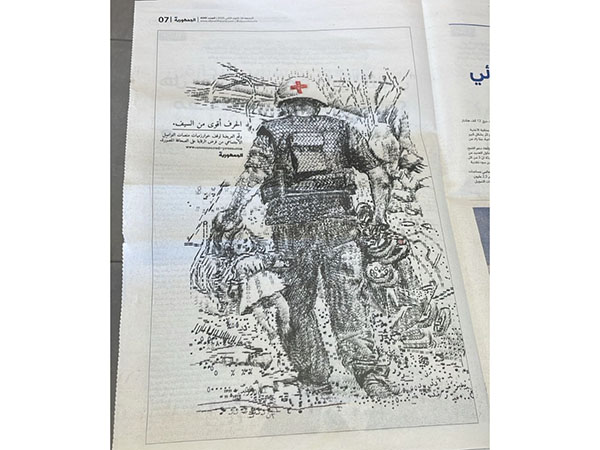
'Uncensored Press’: Overcoming algorithmic censorship to uncover war’s truth
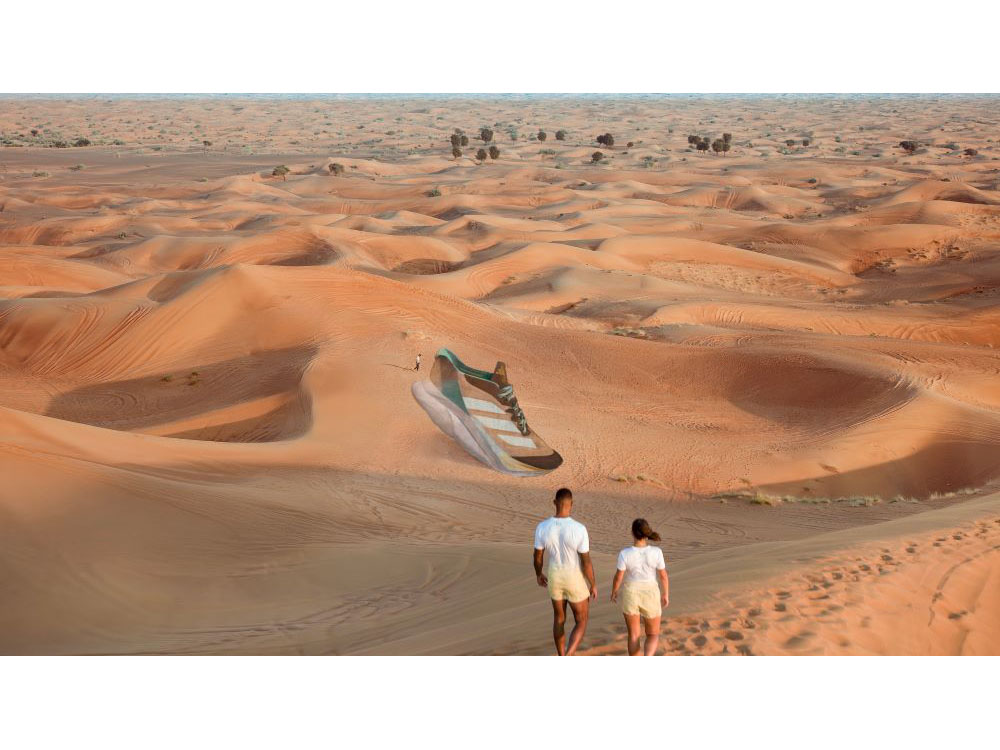
An exciting collaboration between adidas Arabia and earth artist David Popa brings together the power of art, nature and sports
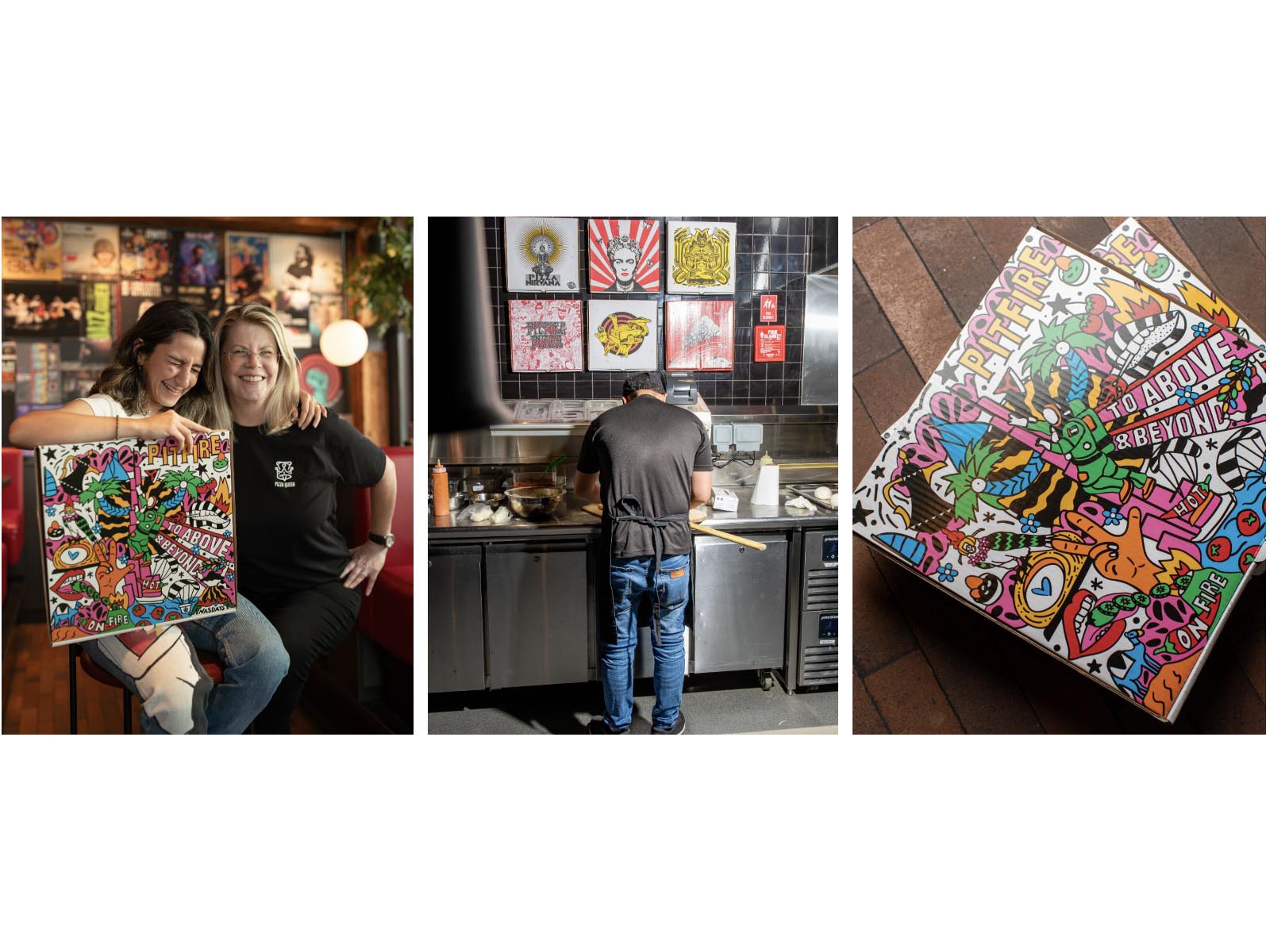
Pitfire’s Box Art Program: how a homegrown brand transformed its packaging into a creative platform to support local talent



